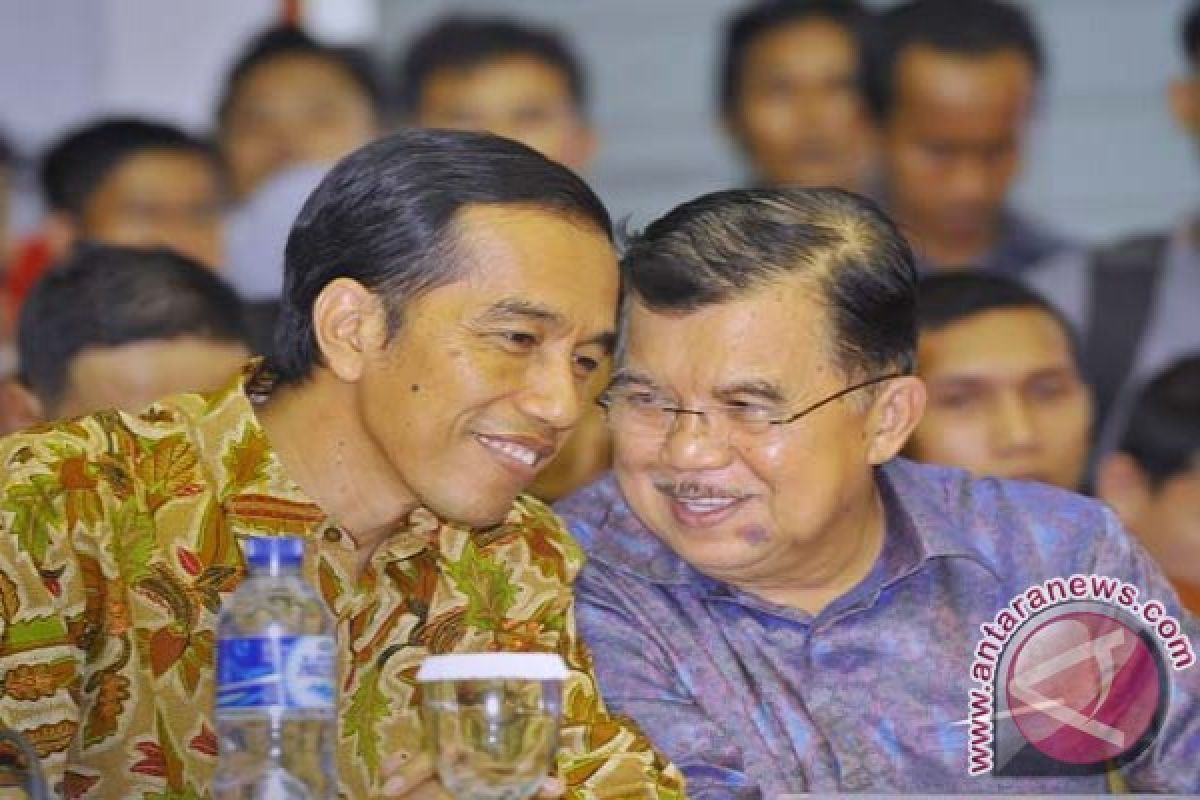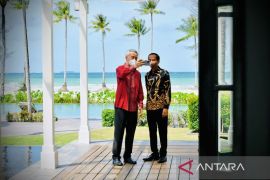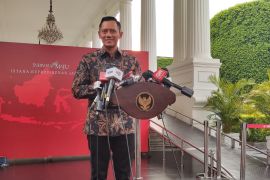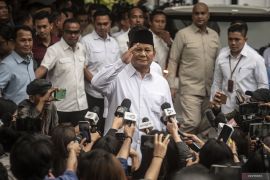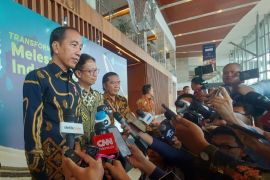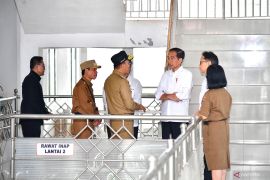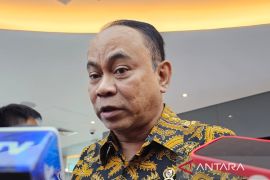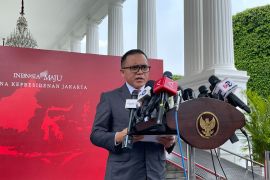After taking oath with M. Jusuf Kalla as president and vice president, Jokowi said they wanted Indonesia to become a creative nation, the one that contributes nobility to the worlds civilization.
"We want to be present among other independent nations with dignity, with pride. We want to build our own civilization, we want to become a creative nation," Jokowi said in his inauguration speech.
The new president in place of Susilo Bambang Yudhoyono noted that the oath Kalla and he took on Monday has a deep spiritual meaning that enforces their commitment to become a big nation.
"It is time to unite our hearts and hands, and continue the heavy work to transform Indonesia into a sovereign country politically, self-sufficient economically, and with a strong character culturally," he remarked.
Jokowi said he was certain that they could share the heavy task together wit unity through "gotong royong" (mutual self help) and hard work.
"Gotong royong is a prerequisite to becoming a big nation. We will never become a big nation if we are divided, we will never be truly free without hard work," he affirmed.
The reform-minded technocrat said his administration would ensure that every people in the motherland feel the presence of their government.
Jokowi said he was certain that the nation will be stronger if state institutions do their work according to the peoples mandate, as written in the Constitution.
The new president then urged the fishermen, laborer, farmers, meatball vendors, street vendors, drivers, academics, teachers, military, police, entrepreneurs, and professionals to work hard.
"I urge you to work hard, and gotong royong, because this is the historic moment for us all to move together to restore Indonesia as a maritime country because the oceans, the seas, the bays, and the straits are the future of our civilization," Jokowi noted.
"We have far too long turned our back on the seas, the oceans, the straits, and the bays. Its time to restore everything so that "jalesveva jayamahe" (in the sea we will triumph), a slogan used by our forefathers, will echo again," he went on.
Jokowi acknowledged that building a country could not be done alone by the president and vice president, and the administration they lead for they need a collective strength.
"The next five years will be a momentum to show our freedom as a nation. Therefore, work and work hard is the priority. I am certain with hard work and gotong royong we will be able to protect Indonesia as a whole, improve welfare, and contribute to the world order in accordance with the principles of freedom, eternal peace, and social justice," he noted.
The newly inaugurated president also confirmed in his first presidential speech that Indonesia will remain developing free and active foreign diplomacy.
"As the third biggest country in the world with the biggest Muslim population in the world, as an archipelagic nation and the biggest nation in Southeast Asia, Indonesia will keep on practicing a free and active foreign diplomacy, for the national interest, and contribute in creating a world order in accordance with the principles of freedom, eternal peace, and social justice," he said.
Associate Professor Greg Fealy from the Australian National University said in ABC News in its website http://www.abc.net.au that Australia could expect a realistic, pragmatic approach to foreign policy from Jokowi, although international affairs does not appear to be a major priority for him.
"One thing that makes him unusual in Indonesia is he has a reputation for being a very clean politician and quite reform minded," Fealy told the ABC from Jakarta.
"There are not many senior political figures in Indonesia about whom you can say that," Fealy noted.
Along the way Jokowi has had policy wins in areas like health care, education and public transportation.
But Aaron Connelly, a research fellow at the Lowy Institute, says governing South East Asias largest economy will test his political mettle.
"Jokowi has a great track record in Surakarta and Jakarta, but primarily as a municipal manager. Its not really clear how his skills providing healthcare to residents in Jakarta, or more hospital beds in Surakarta, are going to translate to the national level," Connelly said.
However, Jokowi implored his fellow countrymen to remember one thing as said by Indonesias first President Soekarno that in order to build Indonesia into a big nation, prosperous and peaceful, the country needs the spirit of courage to face the waves.
"As the captain of the ship as trusted by the people, I urge you all to get on the ship of the Republic of Indonesia and sail towards Great Indonesia," said Jokowi, who inauguration as president proceeded in an upbeat mood and was attended by six foreign heads of state and 13 special envoys.
The six leaders were Sultan Hassanal Bolkiah of Brunei Darussalam, Timor Leste President Taur Mata Huak, Malaysian Prime Minister Najib Razak, Papua New Guinean (PNG) Prime Minister Peter ONeill, Australian Prime Minister Tony Abbott, and Singaporean Prime Minister Lee Hsien Loong.
Other foreign ministers and dignitaries attending the ceremony included Japans former prime minister Yasuo Fukuda, the US Secretary of State John Kerry, Filipino Foreign Minister Albert del Rosario, New Zealands Foreign Minister Murray McCully, Thai Deputy Prime Minister, the Sri Lankan industry and oil minister, the Russian industry and trade minister, and Turkeys trade minister.
Special envoys from South Korea, Canada, and China were also present during the ceremony.
(T.O001/KR-BSR/S012)
Reporter: Otniel Tamindael
Editor: Priyambodo RH
Copyright © ANTARA 2014
